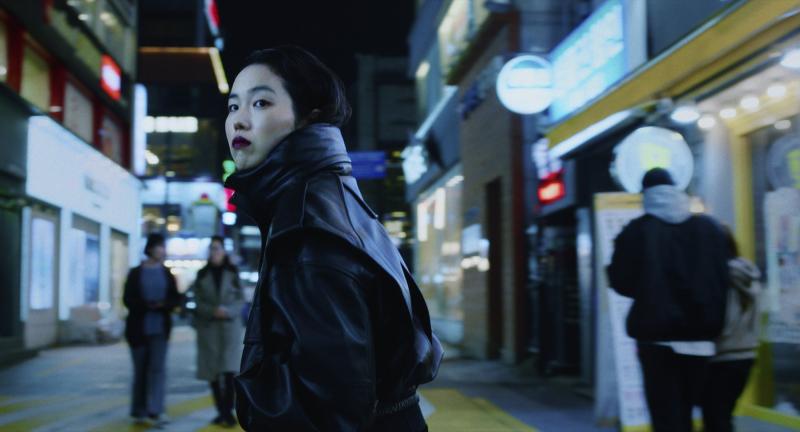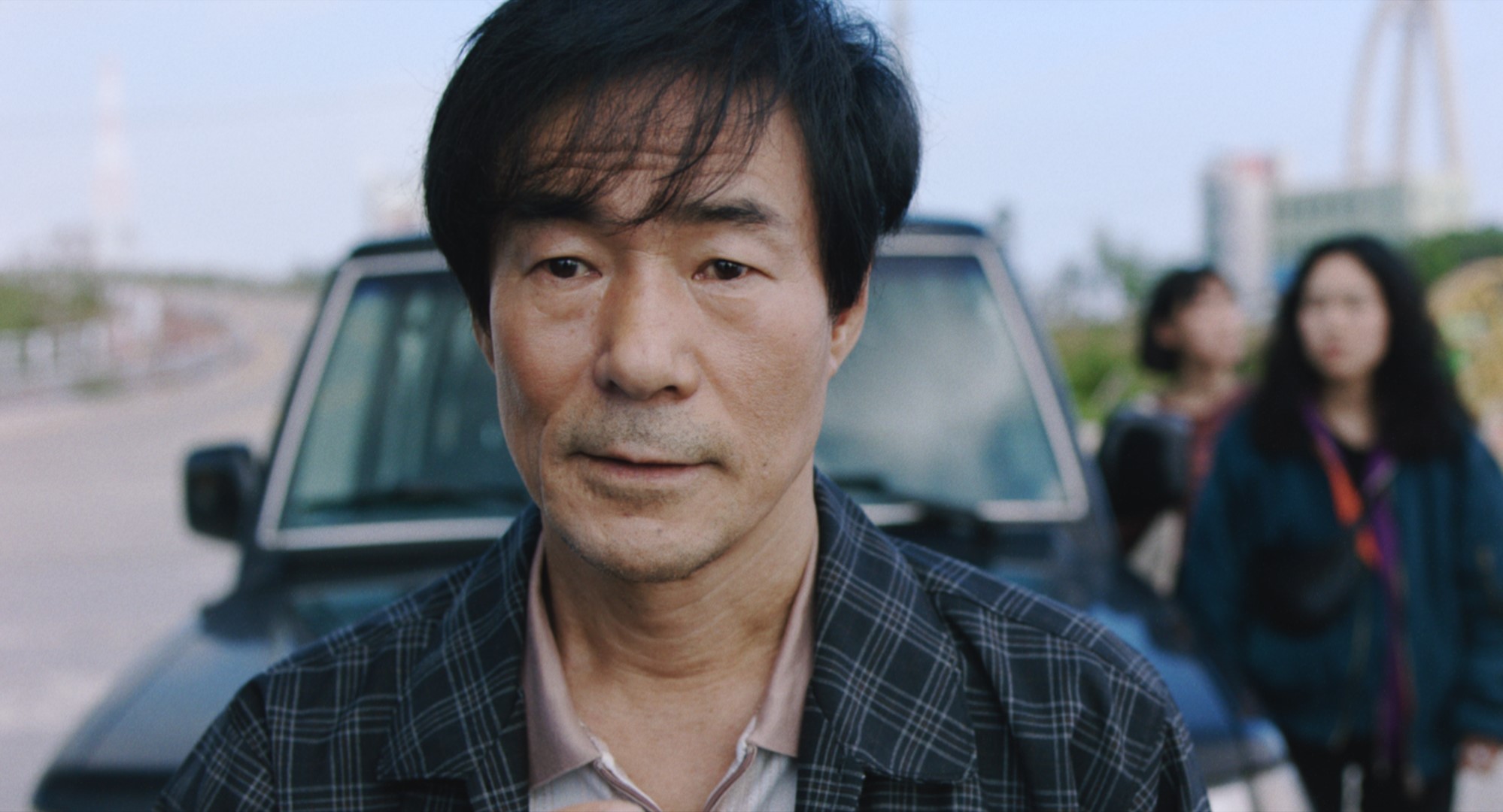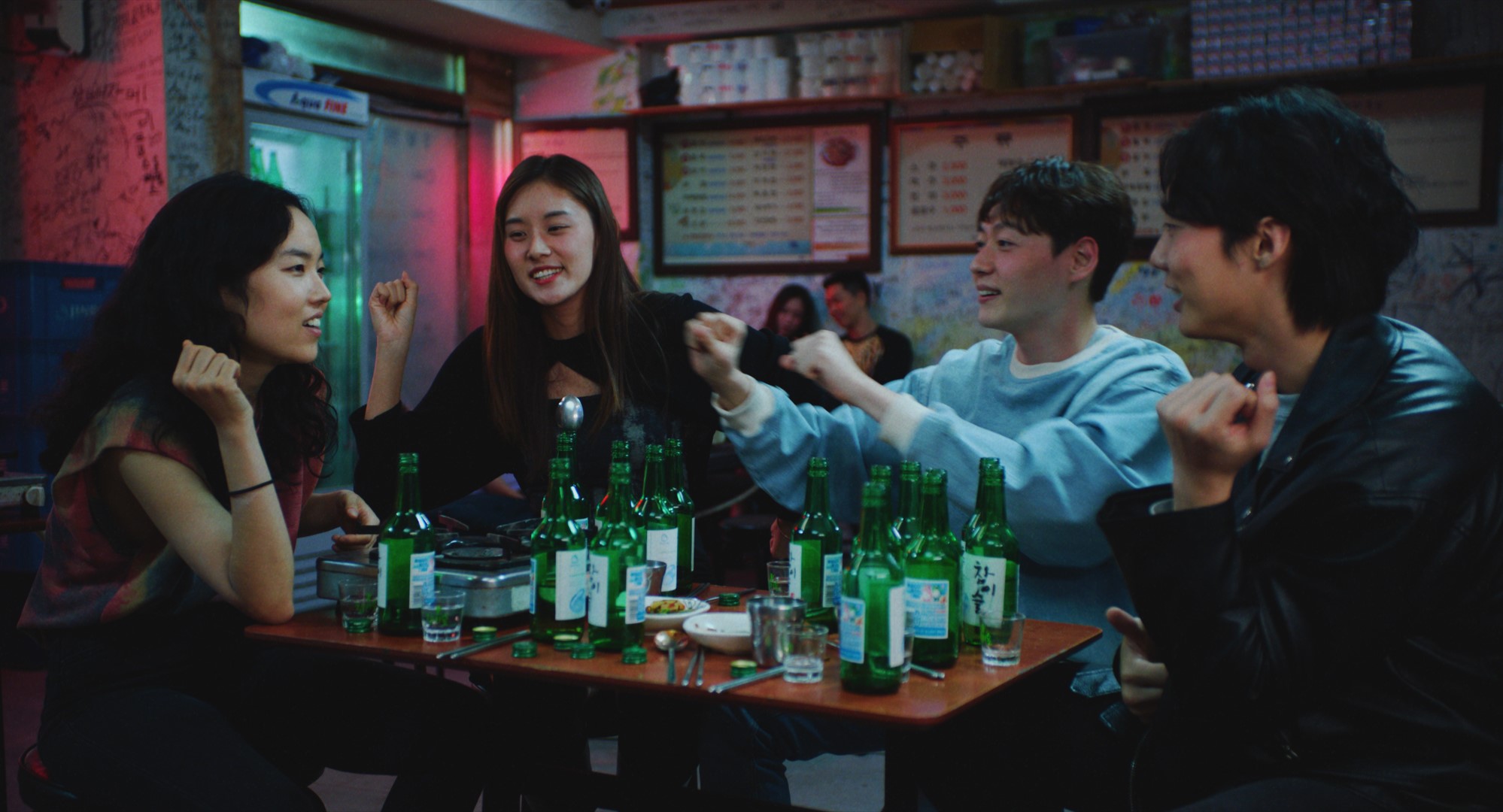Return to Seoul review - lost in translation | reviews, news & interviews
Return to Seoul review - lost in translation
Return to Seoul review - lost in translation
A ferocious Frenchwoman explores her alien birth-country, in an adventure of identity

Freddie (Park Ji-min) is a social hand grenade, flinging herself into situations to see where the splinters fall. Born in Korea but adopted and raised by French parents, a seemingly impulsive, brief detour to Seoul sees her seek out her birth-parents.
Her birth-mum ignores her, and her birth-dad (Oh Kwang-rok, pictured below) proves a gauche, maudlin drunk. In a film of mistranslations, anger and rejection fall into the linguistic chasm between French-speaking Freddie and her new family. Her birth-aunt (Kim Sun-young) is the embarrassed go-between, improvising polite Korean frames around Freddie’s cutting words and Dad’s pleading. Birth-dad and daughter share mutual need and thorny attraction, based on loss and destabilised identities. Nurtured as French, Freddie’s suspicion of a Korean nature nags; her quest for completion is rocky and endless. Writer-director Danny Chou revisits Freddie over eight years. The long gaps show life’s unpredictable, pinballing nature, as her supposedly chance trip to Seoul triggers transforming life-choices. She is a 25-year-old student when she arrives and a 33-year-old arms dealer, selling worse than hand grenades, on her last trip, the outre job bizarrely indicating her indifference to limits, as she sets her alternately furious or ferociously amused face against the world. She is challenging and indomitable, more concerned with provoking than typically Korean or female niceties. Charismatically seizing and smashing every moment, she forces new Korean friends and strangers together at a bar, and leaps on a man’s back at a club, their dance a half-fight she wins. Waking up next to a guy and unsure if they’ve had sex, she has another go to make sure.
Writer-director Danny Chou revisits Freddie over eight years. The long gaps show life’s unpredictable, pinballing nature, as her supposedly chance trip to Seoul triggers transforming life-choices. She is a 25-year-old student when she arrives and a 33-year-old arms dealer, selling worse than hand grenades, on her last trip, the outre job bizarrely indicating her indifference to limits, as she sets her alternately furious or ferociously amused face against the world. She is challenging and indomitable, more concerned with provoking than typically Korean or female niceties. Charismatically seizing and smashing every moment, she forces new Korean friends and strangers together at a bar, and leaps on a man’s back at a club, their dance a half-fight she wins. Waking up next to a guy and unsure if they’ve had sex, she has another go to make sure.
Chou is Cambodian-French, and his film shares Freddie’s French perspective and growing Korean intimacy. Her two-shot dialogue with a French arms dealer date is tres Gallic in its abstract, epigrammatic jousting, jolting Return to Seoul out of its absorbing flow. Chou and director of photography Thomas Favel meanwhile set her down in a Korea of contrasts: a room of neon gold in a night-dark apartment, a club’s intoxicating heat and cool, blue countryside. Submerging into the city’s steamy underground, she surfaces as a calm professional. Such headstrong progress is startling and almost exemplary, a self-defined, fearless way of being female. Korean men are contrastingly, weepily melodramatic and hard to shake. Freddie relies on mesmerised female friends, dabbles in lesbian attraction and has functional male relationships, coolly telling one: “I could wipe you from my life with a snap of my fingers.” Music is a sensual layer and mode of expression, as she gets a hipster haunt’s DJ to switch from atmospheric Korean noir-pop to head-cleansing techno, then goes home with the DJ, having alienated everyone else.
Such headstrong progress is startling and almost exemplary, a self-defined, fearless way of being female. Korean men are contrastingly, weepily melodramatic and hard to shake. Freddie relies on mesmerised female friends, dabbles in lesbian attraction and has functional male relationships, coolly telling one: “I could wipe you from my life with a snap of my fingers.” Music is a sensual layer and mode of expression, as she gets a hipster haunt’s DJ to switch from atmospheric Korean noir-pop to head-cleansing techno, then goes home with the DJ, having alienated everyone else.
We last see Freddie in the guise of a student backpacker in a sort of solitary pilgrimage. A late twist in her adoptees’s search touches till now suppressed, tearful vulnerability, completing her in a way. What she wants stays out of reach, but the search is its own progress - an odyssey of opening up.
rating
Explore topics
Share this article
The future of Arts Journalism
You can stop theartsdesk.com closing!
We urgently need financing to survive. Our fundraising drive has thus far raised £49,000 but we need to reach £100,000 or we will be forced to close. Please contribute here: https://gofund.me/c3f6033d
And if you can forward this information to anyone who might assist, we’d be grateful.

Subscribe to theartsdesk.com
Thank you for continuing to read our work on theartsdesk.com. For unlimited access to every article in its entirety, including our archive of more than 15,000 pieces, we're asking for £5 per month or £40 per year. We feel it's a very good deal, and hope you do too.
To take a subscription now simply click here.
And if you're looking for that extra gift for a friend or family member, why not treat them to a theartsdesk.com gift subscription?
more Film
 Bugonia review - Yorgos Lanthimos on aliens, bees and conspiracy theories
Emma Stone and Jesse Plemons excel in a marvellously deranged black comedy
Bugonia review - Yorgos Lanthimos on aliens, bees and conspiracy theories
Emma Stone and Jesse Plemons excel in a marvellously deranged black comedy
 theartsdesk Q&A: director Kelly Reichardt on 'The Mastermind' and reliving the 1970s
The independent filmmaker discusses her intimate heist movie
theartsdesk Q&A: director Kelly Reichardt on 'The Mastermind' and reliving the 1970s
The independent filmmaker discusses her intimate heist movie
 Blu-ray: Wendy and Lucy
Down-and-out in rural Oregon: Kelly Reichardt's third feature packs a huge punch
Blu-ray: Wendy and Lucy
Down-and-out in rural Oregon: Kelly Reichardt's third feature packs a huge punch
 The Mastermind review - another slim but nourishing slice of Americana from Kelly Reichardt
Josh O'Connor is perfect casting as a cocky middle-class American adrift in the 1970s
The Mastermind review - another slim but nourishing slice of Americana from Kelly Reichardt
Josh O'Connor is perfect casting as a cocky middle-class American adrift in the 1970s
 Springsteen: Deliver Me From Nowhere review - the story of the Boss who isn't boss of his own head
A brooding trip on the Bruce Springsteen highway of hard knocks
Springsteen: Deliver Me From Nowhere review - the story of the Boss who isn't boss of his own head
A brooding trip on the Bruce Springsteen highway of hard knocks
 The Perfect Neighbor, Netflix review - Florida found-footage documentary is a harrowing watch
Sundance winner chronicles a death that should have been prevented
The Perfect Neighbor, Netflix review - Florida found-footage documentary is a harrowing watch
Sundance winner chronicles a death that should have been prevented
 Blu-ray: Le Quai des Brumes
Love twinkles in the gloom of Marcel Carné’s fogbound French poetic realist classic
Blu-ray: Le Quai des Brumes
Love twinkles in the gloom of Marcel Carné’s fogbound French poetic realist classic
 Frankenstein review - the Prometheus of the charnel house
Guillermo del Toro is fitfully inspired, but often lost in long-held ambitions
Frankenstein review - the Prometheus of the charnel house
Guillermo del Toro is fitfully inspired, but often lost in long-held ambitions
 London Film Festival 2025 - a Korean masterclass in black comedy and a Camus classic effectively realised
New films from Park Chan-wook, Gianfranco Rosi, François Ozon, Ildikó Enyedi and more
London Film Festival 2025 - a Korean masterclass in black comedy and a Camus classic effectively realised
New films from Park Chan-wook, Gianfranco Rosi, François Ozon, Ildikó Enyedi and more
 After the Hunt review - muddled #MeToo provocation
Julia Roberts excels despite misfiring drama
After the Hunt review - muddled #MeToo provocation
Julia Roberts excels despite misfiring drama
 Ballad of a Small Player review - Colin Farrell's all in as a gambler down on his luck
Conclave director Edward Berger swaps the Vatican for Asia's sin city
Ballad of a Small Player review - Colin Farrell's all in as a gambler down on his luck
Conclave director Edward Berger swaps the Vatican for Asia's sin city
 London Film Festival 2025 - Bradley Cooper channels John Bishop, the Boss goes to Nebraska, and a French pandemic
... not to mention Kristen Stewart's directing debut and a punchy prison drama
London Film Festival 2025 - Bradley Cooper channels John Bishop, the Boss goes to Nebraska, and a French pandemic
... not to mention Kristen Stewart's directing debut and a punchy prison drama

Add comment